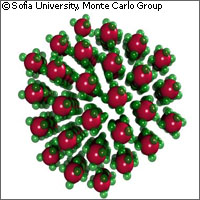Commission launches consultation on responsible nano research
The European Commission has launched a consultation on responsible research in nanosciences and nanotechnologies. The consultation is part of the Commission's plan to suggest that the EU Member States sign up to a Code of Conduct for this emerging area of science. A broad spectrum of society is addressed by the consultation, from the scientific community and industry to civil society, policy-makers, media and the general public. 'Nanosciences and nanotechnologies have the potential to drive growth and jobs in Europe, and their development and use should not be delayed, unbalanced or left to chance,' said EU Science and Research Commissioner Janez Potocnik. 'It is important that we pursue this knowledge with full understanding of the possible implications of these new areas of science, and that we do so openly and involving all concerned.' The Commissioner also stressed that the consultation demonstrates the Commission's commitment to 'developing the potential of nanosciences with appropriate safeguards'. Estimates as to the market potential of nanotechnology products vary, but are all very positive. The Mitsubishi Institute estimated in 2002 that the market would be worth USD 150 billion (around €110 billion) by 2010, while in 2004 the Lux Research group predicted that the market would be worth USD 2.6 trillion (around €1.9 trillion) by 2014. If this latter estimate is proved to be accurate, it will mean the nanoscience and nanotechnology market overtaking the information and communication technologies (ICT) market, and growing to 10 times the size of the biotechnology market. However, concerns over safety have put the brakes on some research into the nanosciences and nanotechnologies. The principal concerns cover the ability of nanoparticles to cross natural bio-boundaries, and the prospect of connecting living creatures and human-made materials and systems. These concerns have led to the development of a new area of research: the responsible management and control of nanosciences. This involves ethics, safety, the environment, individual rights, and the protection of personal data. The Code of Conduct would encompass basic principles on which to base future developments in nano research, and would invite signatories to take concrete action to ensure that nanotechnologies are developed in a safe manner. The consultation will close on 21 September.

